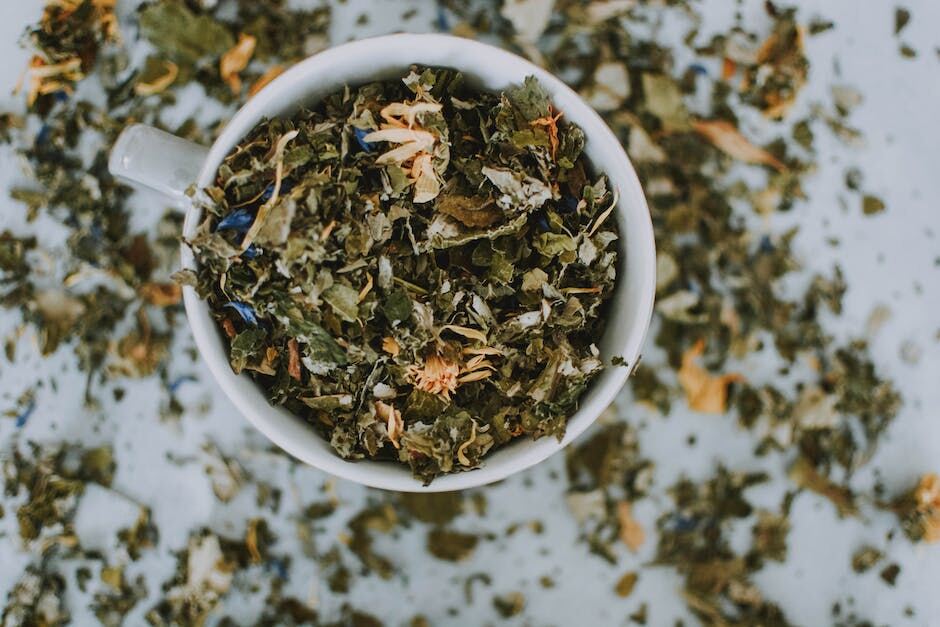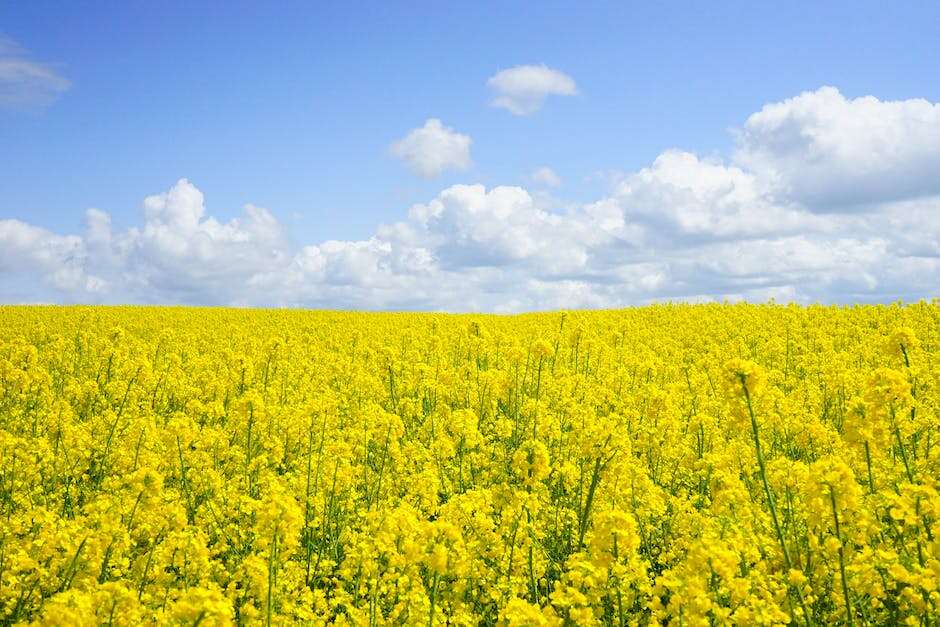Introduction to Herbal Tea Expectorant
Herbal tea has long been cherished for its soothing and medicinal properties. From calming anxiety to boosting immune health, herbal tea has a wide range of benefits. One particular use of herbal tea is as an expectorant. An expectorant is a substance that helps to loosen and expel mucus from the respiratory system, making it easier to breathe.
Herbal tea expectorants work by promoting the production of thin, watery mucus in the lungs, which helps to clear congestion and relieve coughing. They can be a great natural alternative to over-the-counter expectorant medications, which often come with unwanted side effects.
In this article, we will explore the benefits of using herbal tea as an expectorant, discuss some popular herbs used in herbal tea expectorants, explain how to prepare and consume herbal tea expectorants, and highlight some precautions and potential side effects to be aware of.
Benefits of using Herbal Tea as an Expectorant
There are several benefits to using herbal tea as an expectorant:
- Natural and Chemical-Free: Herbal tea expectorants are made from natural herbs and do not contain any synthetic chemicals or additives. This makes them a safe and gentle option for those looking to clear their respiratory system without relying on potentially harsh medications.
- Effective in Loosening Mucus: Herbal teas have properties that help to break down and loosen mucus in the respiratory system. This can be especially beneficial for individuals dealing with conditions such as bronchitis, common cold, or allergies, as it can help alleviate coughing and congestion.
- Supports Respiratory Health: Regular consumption of herbal tea expectorants can help support overall respiratory health. These teas often contain herbs that have anti-inflammatory, antimicrobial, and antioxidant properties. They can also help soothe irritated airways and reduce inflammation in the lungs.
- Relief from Respiratory Symptoms: Herbal tea expectorants can provide relief from common respiratory symptoms such as coughing, chest congestion, and difficulty breathing. They can help to clear the airways and make it easier to breathe, promoting a sense of comfort and well-being.
- Customizable and Versatile: Herbal tea expectorants can be easily customized to suit individual preferences and needs. Different herbs can be combined to target specific respiratory issues or to enhance the taste and aroma of the tea. This versatility allows tea lovers to experiment and create their own personalized expectorant blends.
Overall, using herbal tea as an expectorant can provide a natural and effective way to promote respiratory health and alleviate respiratory symptoms. It offers a gentle and customizable approach to clearing congestion and soothing the airways, making it a popular choice among tea enthusiasts.
Popular Herbs Used in Herbal Tea Expectorant

There are several herbs commonly used in herbal tea expectorants, each with their own unique properties and benefits. Here are some popular herbs you may find in these teas:
- Peppermint: Peppermint is a refreshing herb known for its soothing and cooling properties. It can help to relax the muscles in the respiratory system, reducing coughing and promoting easier breathing.
- Thyme: Thyme is a powerful herb with antiviral and antibacterial properties. It has been traditionally used to treat respiratory conditions such as bronchitis and coughs. Thyme can help to break down mucus and relieve congestion.
- Eucalyptus: Eucalyptus leaves are often used in herbal teas for their strong aroma and therapeutic benefits. They contain a compound called eucalyptol, which has expectorant properties and can help to clear blocked airways.
- Ginger: Ginger is a warming herb known for its anti-inflammatory and immune-boosting properties. It can help to reduce inflammation in the respiratory system and soothe irritated airways.
- Licorice Root: Licorice root is commonly used for its natural sweetness and throat-soothing properties. It can help to relieve coughs and promote mucus production, making it easier to expel.
These are just a few examples of the herbs commonly found in herbal tea expectorants. Other herbs such as mullein, marshmallow root, and chamomile may also be included for their respiratory benefits. It’s important to note that the effectiveness of these herbs may vary from person to person, so it’s always best to consult with a healthcare professional before incorporating them into your routine.
How to Prepare and Consume Herbal Tea Expectorant
Preparing and consuming herbal tea expectorant is a simple and enjoyable process. Here are some steps to follow:
- Choose your herbs: Select the herbs you want to use in your herbal tea expectorant. You can choose a single herb or create a blend of herbs based on your preferences and desired benefits.
- Measure the herbs: Depending on the strength and flavor you desire, measure out the appropriate amount of herbs. A general guideline is to use about 1 to 2 teaspoons of dried herbs or 1 tablespoon of fresh herbs for every 8 ounces of water.
- Boil water: Bring water to a boil in a kettle or saucepan. Ensure that the water is clean and filtered for the best results.
- Steep the herbs: Place the herbs in a teapot or a heat-resistant container. Pour the boiling water over the herbs and cover the container. Let them steep for about 5 to 10 minutes, or longer if desired, to extract the flavors and properties of the herbs.
- Strain and serve: After steeping, strain the herbal tea to remove the herbs. You can use a tea strainer or a fine-mesh sieve for this. Pour the tea into your favorite teacup or mug, and it’s ready to be enjoyed.
- Add natural sweeteners or flavorings: If desired, you can enhance the taste of your herbal tea by adding natural sweeteners like honey, maple syrup, or stevia. You can also experiment with flavorings such as lemon, cinnamon, or ginger to create your own unique blend.
- Sip and savor: Take your time to sip and savor the herbal tea. Breathe in the aromatic steam and enjoy the soothing warmth as you consume the expectorant. You can drink it hot or let it cool and enjoy it as an iced tea.
Remember to consult with a healthcare professional or herbalist to ensure that the herbs you choose are safe and suitable for your specific health needs. It’s also important to be mindful of any potential allergies or sensitivities to the herbs before consuming them.
Precautions and Potential Side Effects of Herbal Tea Expectorant
While herbal tea expectorants can be a natural and effective option for promoting respiratory health, it’s important to be aware of certain precautions and potential side effects:
- Allergies: Some individuals may have allergies or sensitivities to certain herbs used in herbal tea expectorants. If you have known allergies, it’s essential to research and identify any potential allergens in the herbs before consuming them.
- Interactions with Medications: Herbal teas may interact with certain medications, such as blood thinners or medications for high blood pressure. It’s crucial to consult with your healthcare provider before incorporating herbal teas into your routine, especially if you are taking any medications.
- Pregnancy and Breastfeeding: Pregnant or breastfeeding individuals should exercise caution when consuming herbal teas. Some herbs may not be safe during these stages, and it’s best to consult with a healthcare professional before consuming herbal teas as an expectorant.
- Overconsumption: While herbal teas are generally safe, excessive consumption of certain herbs may lead to adverse effects. It’s important to follow recommended dosage guidelines and listen to your body’s response. If you experience any discomfort or side effects, discontinue use and seek medical advice.
- Quality of Herbs: Ensure that you are using high-quality herbs sourced from reputable suppliers. Pesticide residue or impurities in low-quality herbs can compromise their safety and efficacy.
As with any health-related decision, it’s always best to consult with a healthcare professional or herbalist before incorporating herbal tea expectorants into your routine. They can provide personalized advice based on your specific health needs and guide you towards the appropriate herbs and dosages.
By being informed and taking necessary precautions, you can safely enjoy the benefits of herbal tea expectorants and support your respiratory health naturally.


Leave a Reply